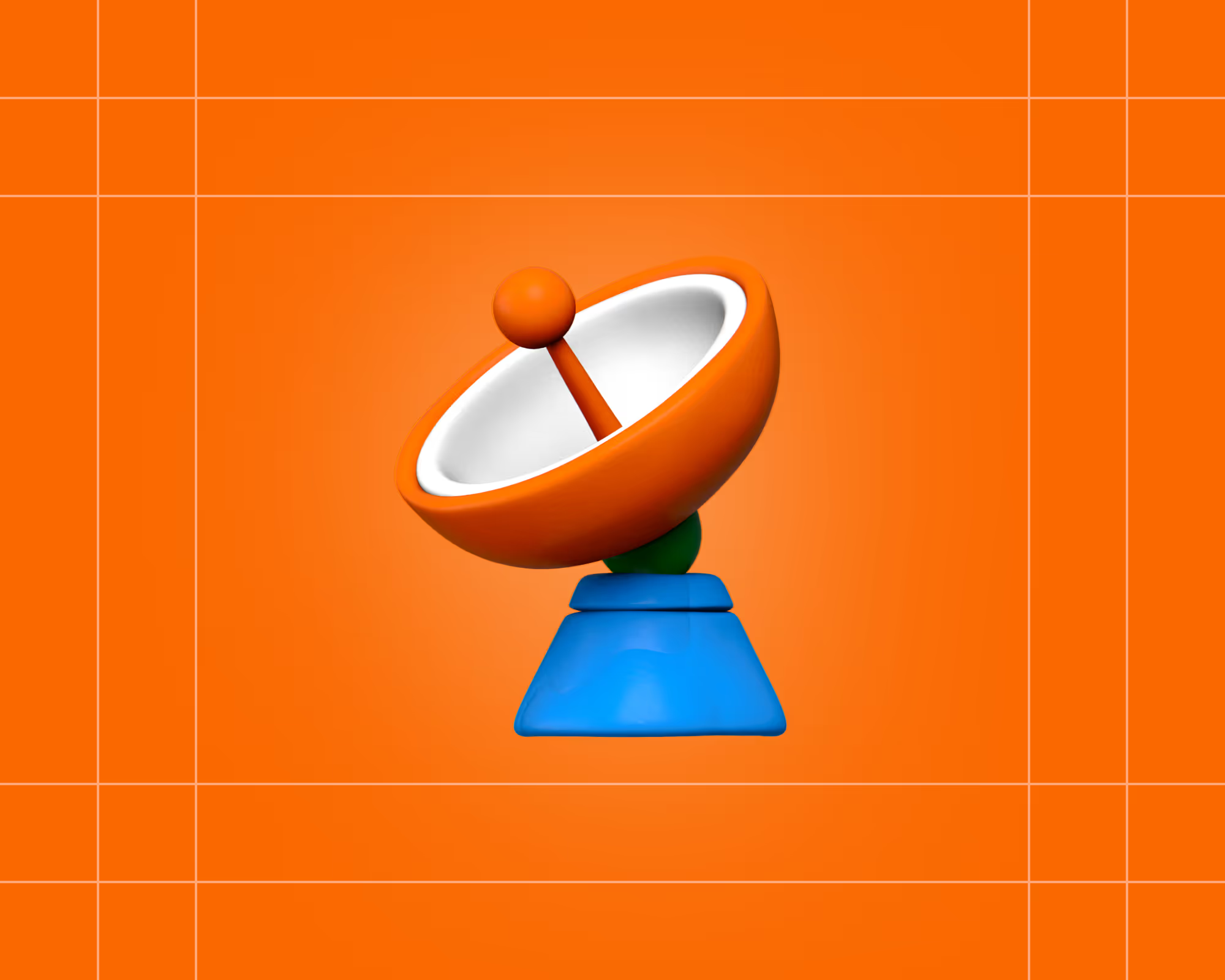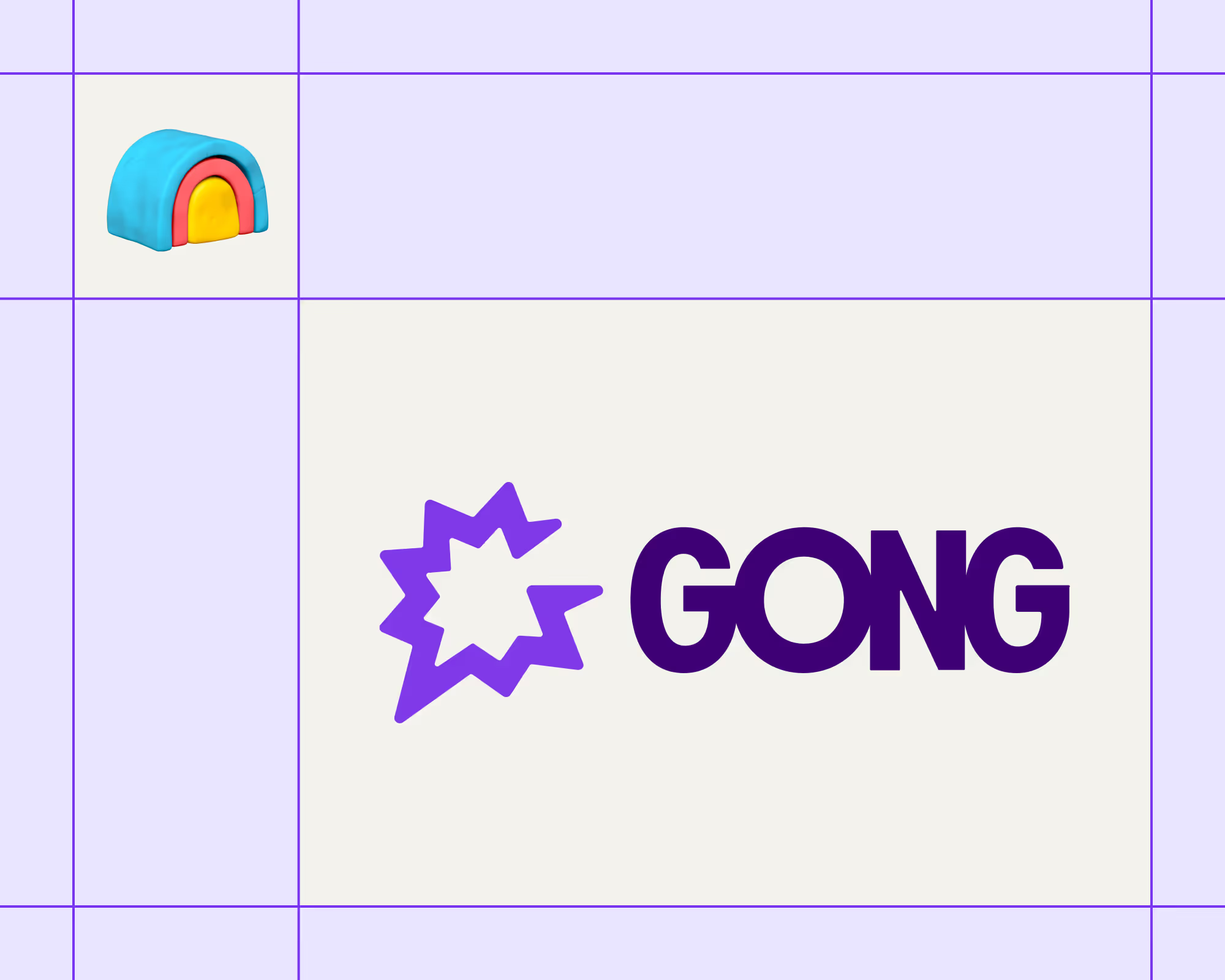Web scraping can make your life a lot easier when you’re launching outbound campaigns. It helps you get the data you need at scale without exhausting manual processes. If you’re thinking about using a web scraper to tighten your workflow, you might be wondering about the regulatory aspect of doing so.
In other words, you might ask a simple question—“Is web scraping legal”?
There’s no clear answer here, but fret not—this guide will clear the air as much as possible. We’ll also show you some ethical ways to scrape the web that we’ve gathered from marketing and sales pros in our network.
❗ Disclaimer: Data scraping might be within our expertise, but the law isn’t. The content on this page should only be used for educational purposes, so make sure to consult an attorney if you need legal counsel.
Legality of Web Scraping Explained
Web scraping as a practice is technically legal since there are no federal laws or regulations prohibiting it. Countless web pages are scraped daily for various purposes, from AI training to lead generation. There haven’t been many legal ramifications surrounding the practice itself, so you should be fine if you add it to your workflow.
So that’s it—you can fire up your data scraper and start filling your database, right?
Not exactly, as most legal matters aren’t that simple. While web scraping isn’t strictly illegal, you need to consider the following factors to understand the big picture and stay on the safe side:
- Public vs. private data 🤫
- Regulations regarding personally identifiable information (PII) 🧑⚖️
- Websites’ terms of service (ToS) 📄

Scraping Public Data vs. Private Information
When we say web scraping is legal, we’re specifically talking about public data. In the scraping context, this encompasses all data that can be accessed without a login. Some examples include the following:
- Content that isn’t exclusive to a website’s members
- Free/open academic data
If you plan on scraping any of the above, you should be able to do it without running into legal troubles—as long as you respect the related laws.
For example, public content might still be copyrighted, which opens an entirely different legal dimension. You’re only allowed to collect and employ such data if doing so falls under fair use, which can be tricky to determine.
Generally, if you scrape copyrighted materials for educational purposes, to report news, or as part of research, you might have grounds to claim fair use. You’ll have slim chances of doing so if you scrape data to:
- Replicate it
- Use it for commercial purposes
- Distribute it without permission
To sum up, you should be able to scrape public data without risks as long as there are no violations of other laws protecting it. This doesn’t go for private data, which is illegal to scrape in any case.
Is Data Scraping Legal When It Comes to PII?
PII encompasses any information that can be used to identify an individual, such as:
- Name
- Phone number
- Address
- Date of birth
Scraping Personal Identifiable Information (PII) has been a hot topic for a while now, and we don’t seem to have any universal guidelines when it comes to its legality. Several data protection laws might stand in the way of risk-free scraping, two of which are particularly important:
- General Data Protection Regulation (GDPR) in the EU
- California Consumer Privacy Act (CCPA) in California
Both regulations prohibit the collection of PII without the user’s explicit consent or a lawful reason for its gathering. This means that if you wish to scrape the personal data of EU or California citizens, you may enter a legal gray area.
The U.S. doesn’t have any federal regulations that limit the collection of PII in other states, so doing so is much safer from a legal standpoint.
Note that the above regulations don’t apply specifically to web scraping (as in using an automated tool to gather data) but to any form of PII collection. This further confirms our point that using a web scraper isn’t illegal on its own, but there might be other laws you should be aware of.
ToS and Web Scraping Legality
Some websites explicitly forbid web scraping in their ToS. This means that if you agree to them and scrape the site nonetheless, the webmaster might be able to take legal action against you by invoking the Computer Fraud and Abuse Act (CFAA).
This caveat overlaps with another topic we covered above—scraping public vs. private data. The thing is, ToS are typically accepted when you create an account or log into a website or service. If you can scrape data without logging in (and accepting ToS along the way), you likely won’t face legal consequences.
How To Gather Data at Scale Without Breaking Web Scraping Rules
Keeping in mind everything we’ve discussed above, you can scrape websites without getting in trouble with the law—as long as you do it carefully. To stay on the right side of the law, follow these five tips:
- Avoid scraping protected/copyrighted data
- Check a website’s terms of service before scraping
- Be careful when scraping data protected by GDPR, CCPA, and similar laws
- Don’t overflood the website’s servers with requests
- Avoid scraping during peak hours
Note that the above tips mainly apply if you resort to manual scraping methods like using Python. You can avoid many headaches by opting for a capable scraping tool. Not only will the process be much more streamlined, but you can trust that your chosen platform has systems in place to ensure you can collect data ethically.
There are countless data scraping tools on the web, and the best option will mainly depend on your scraping needs and goals. If you need a sales-oriented solution that sets your outbound campaigns with success, Clay can be an excellent option. 🚀
Clay—The Easiest Way To Get All The Prospect Data You Need

Clay is a robust data enrichment and sales automation platform jam-packed with web scraping features. If you’re new to scraping and want a hands-off way to gather prospect data, you can start with Claygent—an AI scraper that scours the web for the info you need based on simple prompts.
You can tell Claygent to perform specific tasks or ask it questions like:
- Who are the main competitors of [X company]? ⚔️
- What is the average price of products listed on [X website]? 💲
- Who is the hiring manager for [X role]? 🧑💼
You’ll get answers to all your questions in seconds and can avoid the manual scraping process. If you do want to scrape specific websites, use Clay’s Chrome extension. It pulls info in real-time as you visit a page, letting you export all sorts of data points in a single click. You can create specific scraping recipes for different data types without coding or other time-consuming work.

Clay offers over 100 integrations, many of which are geared toward scraping. Some of the most useful integrations are shown in the following table:
Finally, you can automate scraping through dozens of Clay templates. You can perform numerous actions, from enriching inbound leads to scraping Indeed job listings without complex setups.
Empower Your SDRs With Clay’s Data Enrichment and AI Features
Web scraping is only one aspect of Clay’s diverse feature set. The platform lets you build highly effective outreach campaigns from the ground up, even if you don’t have a single lead yet.
For example, you can use Clay to find leads based on numerous search filters, and you’ll have an abundant list in minutes. You can then enrich leads with data like emails, phone numbers, and many other details you can use to send hyper-personalized emails.
With Clay, you get access to over 50 data providers, including some of the biggest B2B databases on the market. This ensures maximum data coverage, minimizing the risk of your emails bouncing back.

Don’t have the time to write email sequences? Let Clay’s AI email builder do it for you. It automatically pulls data from your Clay table to write drafts in seconds. When the emails are ready, you can send them to your email sequencer without hassle, thanks to Clay’s integrations with popular platforms.
Flexible Pricing, Maximized ROI
You can see Clay in action by signing up for its rich free plan. It’s perfect for beginners looking to start their first lead lists and get the hang of automated web scraping. If you want to leverage more advanced features, you can upgrade to one of the following paid plans:
Whichever plan you choose, you’ll get the most out of your investment thanks to Clay’s waterfall enrichment—an innovative approach to data collection that ensures you only pay for successful searches.
Launch Data-Driven Campaigns With Clay
If you want to uplevel your web scraping and outbound campaigns, you can create a free Clay account in three steps:
- Visit the signup page 👈
- Enter your name, email, and password
- Explore Clay’s features
To learn more about the platform and its capabilities, feel free to browse Clay’s University and join the ever-growing Slack community of marketing and sales pros. You can also sign up for Clay’s newsletter to receive useful updates and tips for sending emails that engage and convert prospects effortlessly.
Web scraping can make your life a lot easier when you’re launching outbound campaigns. It helps you get the data you need at scale without exhausting manual processes. If you’re thinking about using a web scraper to tighten your workflow, you might be wondering about the regulatory aspect of doing so.
In other words, you might ask a simple question—“Is web scraping legal”?
There’s no clear answer here, but fret not—this guide will clear the air as much as possible. We’ll also show you some ethical ways to scrape the web that we’ve gathered from marketing and sales pros in our network.
❗ Disclaimer: Data scraping might be within our expertise, but the law isn’t. The content on this page should only be used for educational purposes, so make sure to consult an attorney if you need legal counsel.
Legality of Web Scraping Explained
Web scraping as a practice is technically legal since there are no federal laws or regulations prohibiting it. Countless web pages are scraped daily for various purposes, from AI training to lead generation. There haven’t been many legal ramifications surrounding the practice itself, so you should be fine if you add it to your workflow.
So that’s it—you can fire up your data scraper and start filling your database, right?
Not exactly, as most legal matters aren’t that simple. While web scraping isn’t strictly illegal, you need to consider the following factors to understand the big picture and stay on the safe side:
- Public vs. private data 🤫
- Regulations regarding personally identifiable information (PII) 🧑⚖️
- Websites’ terms of service (ToS) 📄

Scraping Public Data vs. Private Information
When we say web scraping is legal, we’re specifically talking about public data. In the scraping context, this encompasses all data that can be accessed without a login. Some examples include the following:
- Content that isn’t exclusive to a website’s members
- Free/open academic data
If you plan on scraping any of the above, you should be able to do it without running into legal troubles—as long as you respect the related laws.
For example, public content might still be copyrighted, which opens an entirely different legal dimension. You’re only allowed to collect and employ such data if doing so falls under fair use, which can be tricky to determine.
Generally, if you scrape copyrighted materials for educational purposes, to report news, or as part of research, you might have grounds to claim fair use. You’ll have slim chances of doing so if you scrape data to:
- Replicate it
- Use it for commercial purposes
- Distribute it without permission
To sum up, you should be able to scrape public data without risks as long as there are no violations of other laws protecting it. This doesn’t go for private data, which is illegal to scrape in any case.
Is Data Scraping Legal When It Comes to PII?
PII encompasses any information that can be used to identify an individual, such as:
- Name
- Phone number
- Address
- Date of birth
Scraping Personal Identifiable Information (PII) has been a hot topic for a while now, and we don’t seem to have any universal guidelines when it comes to its legality. Several data protection laws might stand in the way of risk-free scraping, two of which are particularly important:
- General Data Protection Regulation (GDPR) in the EU
- California Consumer Privacy Act (CCPA) in California
Both regulations prohibit the collection of PII without the user’s explicit consent or a lawful reason for its gathering. This means that if you wish to scrape the personal data of EU or California citizens, you may enter a legal gray area.
The U.S. doesn’t have any federal regulations that limit the collection of PII in other states, so doing so is much safer from a legal standpoint.
Note that the above regulations don’t apply specifically to web scraping (as in using an automated tool to gather data) but to any form of PII collection. This further confirms our point that using a web scraper isn’t illegal on its own, but there might be other laws you should be aware of.
ToS and Web Scraping Legality
Some websites explicitly forbid web scraping in their ToS. This means that if you agree to them and scrape the site nonetheless, the webmaster might be able to take legal action against you by invoking the Computer Fraud and Abuse Act (CFAA).
This caveat overlaps with another topic we covered above—scraping public vs. private data. The thing is, ToS are typically accepted when you create an account or log into a website or service. If you can scrape data without logging in (and accepting ToS along the way), you likely won’t face legal consequences.
How To Gather Data at Scale Without Breaking Web Scraping Rules
Keeping in mind everything we’ve discussed above, you can scrape websites without getting in trouble with the law—as long as you do it carefully. To stay on the right side of the law, follow these five tips:
- Avoid scraping protected/copyrighted data
- Check a website’s terms of service before scraping
- Be careful when scraping data protected by GDPR, CCPA, and similar laws
- Don’t overflood the website’s servers with requests
- Avoid scraping during peak hours
Note that the above tips mainly apply if you resort to manual scraping methods like using Python. You can avoid many headaches by opting for a capable scraping tool. Not only will the process be much more streamlined, but you can trust that your chosen platform has systems in place to ensure you can collect data ethically.
There are countless data scraping tools on the web, and the best option will mainly depend on your scraping needs and goals. If you need a sales-oriented solution that sets your outbound campaigns with success, Clay can be an excellent option. 🚀
Clay—The Easiest Way To Get All The Prospect Data You Need

Clay is a robust data enrichment and sales automation platform jam-packed with web scraping features. If you’re new to scraping and want a hands-off way to gather prospect data, you can start with Claygent—an AI scraper that scours the web for the info you need based on simple prompts.
You can tell Claygent to perform specific tasks or ask it questions like:
- Who are the main competitors of [X company]? ⚔️
- What is the average price of products listed on [X website]? 💲
- Who is the hiring manager for [X role]? 🧑💼
You’ll get answers to all your questions in seconds and can avoid the manual scraping process. If you do want to scrape specific websites, use Clay’s Chrome extension. It pulls info in real-time as you visit a page, letting you export all sorts of data points in a single click. You can create specific scraping recipes for different data types without coding or other time-consuming work.

Clay offers over 100 integrations, many of which are geared toward scraping. Some of the most useful integrations are shown in the following table:
Finally, you can automate scraping through dozens of Clay templates. You can perform numerous actions, from enriching inbound leads to scraping Indeed job listings without complex setups.
Empower Your SDRs With Clay’s Data Enrichment and AI Features
Web scraping is only one aspect of Clay’s diverse feature set. The platform lets you build highly effective outreach campaigns from the ground up, even if you don’t have a single lead yet.
For example, you can use Clay to find leads based on numerous search filters, and you’ll have an abundant list in minutes. You can then enrich leads with data like emails, phone numbers, and many other details you can use to send hyper-personalized emails.
With Clay, you get access to over 50 data providers, including some of the biggest B2B databases on the market. This ensures maximum data coverage, minimizing the risk of your emails bouncing back.

Don’t have the time to write email sequences? Let Clay’s AI email builder do it for you. It automatically pulls data from your Clay table to write drafts in seconds. When the emails are ready, you can send them to your email sequencer without hassle, thanks to Clay’s integrations with popular platforms.
Flexible Pricing, Maximized ROI
You can see Clay in action by signing up for its rich free plan. It’s perfect for beginners looking to start their first lead lists and get the hang of automated web scraping. If you want to leverage more advanced features, you can upgrade to one of the following paid plans:
Whichever plan you choose, you’ll get the most out of your investment thanks to Clay’s waterfall enrichment—an innovative approach to data collection that ensures you only pay for successful searches.
Launch Data-Driven Campaigns With Clay
If you want to uplevel your web scraping and outbound campaigns, you can create a free Clay account in three steps:
- Visit the signup page 👈
- Enter your name, email, and password
- Explore Clay’s features
To learn more about the platform and its capabilities, feel free to browse Clay’s University and join the ever-growing Slack community of marketing and sales pros. You can also sign up for Clay’s newsletter to receive useful updates and tips for sending emails that engage and convert prospects effortlessly.






















.avif)











.avif)
.avif)






















































